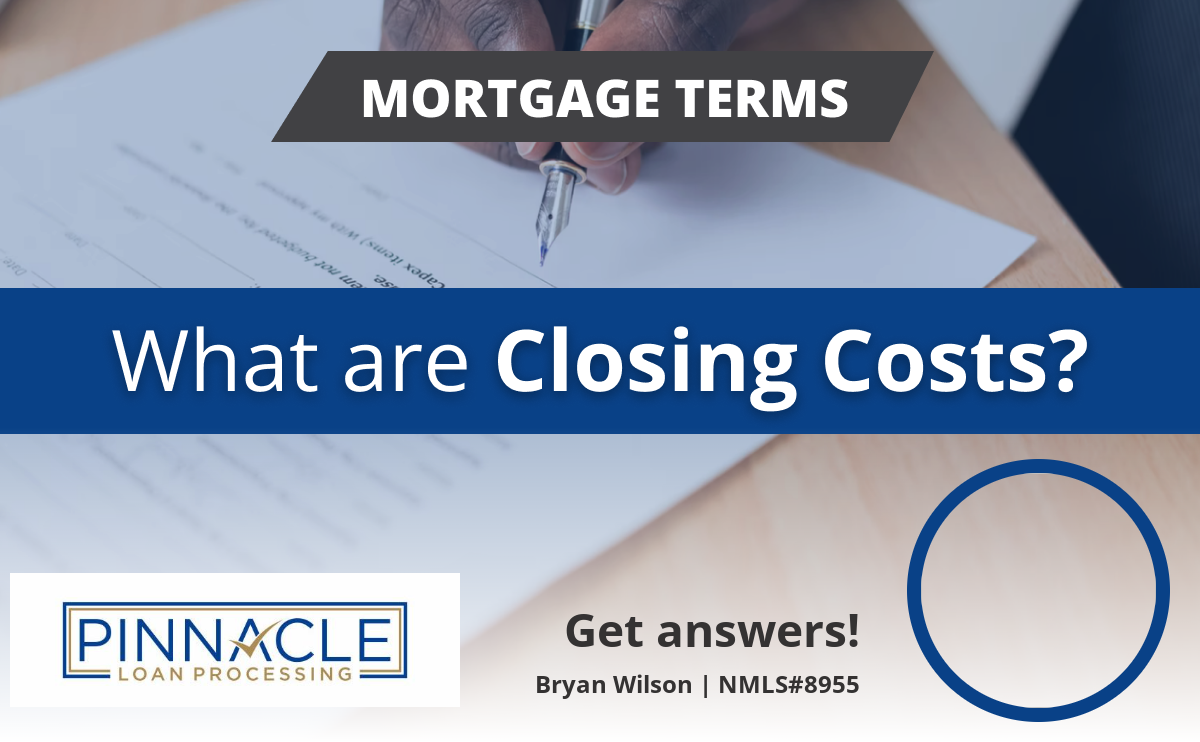Home Loans 101: What are Closing Costs?

Let's talk about "closing costs."
Closing costs involve the expenses that a buyer pays, which are over and above the property's price. These fees cover the cost of services related to processing and securing the loan, ensuring that all aspects of the real estate transaction are handled properly and legally.
Key components of closing costs include:
Title Search: This fee is for a thorough review of the property's historical records to ensure that there are no legal issues, such as unpaid taxes or undisclosed liens, that could affect the new owner's rights.
Appraisal: The lender requires an appraisal to determine the property's market value and ensure the loan amount does not exceed the value of the property. An independent appraiser conducts this assessment.
Discount Points: These are optional fees paid directly to the lender at closing in exchange for a reduced interest rate on the mortgage. One point equals 1% of the loan amount and can lower your monthly payments over the life of the loan.
Deed Recording: This fee covers the cost of officially recording the new deed and mortgage with the local government, which makes the transfer of ownership part of the public record.
Origination Fees: These are charges by the lender for processing the loan application. Origination fees can include underwriting, processing, and administrative costs.
Other Fees: Additional costs might include home inspection fees, prepaid property taxes, homeowners insurance, and private mortgage insurance (if applicable).
Generally speaking, closing costs amount to about 3-5% of the property's purchase price, though this can vary based on location, loan type, and specific lender policies. It's important for buyers to obtain a detailed estimate of closing costs from their lender early in the home buying process to ensure they are prepared for these expenses.
✅ Benefits of Contract Loan Processing for VA Loans
-
Specialized VA Knowledge
-
VA loans have unique requirements (COE, residual income, funding fee calculations, appraisal requirements).
-
A contract processor experienced in VA loans can spot potential issues early and streamline the process.
-
-
Cost Savings for Lenders
-
No need to hire full-time staff; processors are paid per file.
-
Helps smaller brokerages or lenders manage fluctuating loan volumes without carrying extra payroll.
-
-
Faster Turn Times
-
Contract processors often work remotely and are paid per closed file, so they’re incentivized to move loans quickly.
-
They can push COE requests, follow up on VA appraisals, and ensure VA-specific forms (26-1880, 26-8923) are completed on time.
-
-
Compliance & Accuracy
-
VA has strict guidelines (e.g., allowable fees, seller concessions, and veteran protections).
-
A skilled processor reduces risk of compliance errors that could lead to loan buybacks or funding delays.
-
-
Scalability
-
During high volume seasons (e.g., rate drops, PCS military moves), lenders can bring on extra processors quickly without long-term HR commitments.
-
-
Reduced Loan Officer Burden
-
Lets LOs focus on originating, networking, and serving clients while the processor handles gathering DD-214s, income docs, pest inspection reports (if required), and underwriting conditions.
-
-
Improved Borrower Experience
-
Veterans and active-duty borrowers often value clear communication and speed.
-
A processor who knows the VA process can anticipate documentation needs and prevent last-minute surprises.
-
👉 In short: Contract processors help lenders stay lean, compliant, and efficient, while ensuring veterans have a smoother experience.
Get Your
FREE eBOOK
